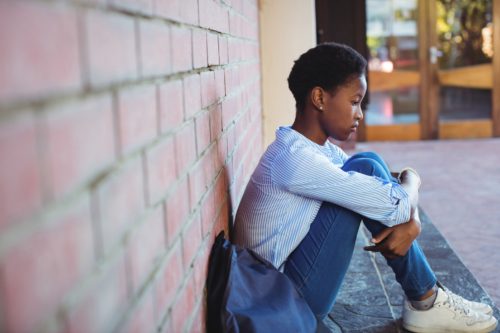Reducing mental health stigma in Black communities

By County News Center
San Diego, CA–The death of Stephen “tWitch” Boss’ by suicide last week was a shock and heartbreaking to millions. It also serves as a sad and poignant reminder many people struggle with mental health challenges, but often suffer in silence.
The acclaimed dancer, choreographer, actor, and producer is well-known for his time on the popular television series So You Think You Can Dance and The Ellen DeGeneres Show, as well as for his roles in high-profile films and shows, including Step Up All In, Magic Mike XXL, Disney’s Fairy Tale Weddings, and Modern Family. Boss, 40, is survived by his wife Allison Holker Boss, and his three children Zaia, Maddox, and Weslie.
“The tragedy of Boss’ death brings visibility and attention to mental health and suicide, which are subjects that can be difficult to talk about, especially within communities of color, and particularly amongst Black Americans,” said Andrew Strong, director of the County of San Diego Office of Equity and Racial Justice. “Although members of the Black community are at an increased risk of developing mental health issues due to numerous historical, economic, social, and political factors [that systemically expose Blacks to factors known to be damaging to psychological and physical health], many do not get connected to the mental health services they need,” Strong added.
In 2019, the U.S. Department of Health and Human Services found suicide was the leading cause of death for African Americans between the ages of 15 and 24 and the death rate was four times greater for Black men than Black women. They are also more likely to experience symptoms:
- African Americans are 20% more likely to experience serious psychological distress, such as major depressive disorder, than other racial groups, according to the National Institute on Minority Health and Disparities.
- Black adults are more likely than white adults to experience persistent symptoms of emotional distress, such as sadness, hopelessness, and feeling that they must dedicate extra effort to everything they do, according to the U.S. Department of Health and Human Services Office of Minority Health.
- Between 2015 and 2018, rates of major depressive disorder in young Black adults—ages 18 to 25—increased by more than 3%, yet Black Americans of all age groups were less likely to seek treatment than white Americans, according to the Substance Abuse and Mental Health Services Administration.
Psychologists and other behavioral health professionals are making great strides towards developing more tailored programming to support the mental health of Black men specifically, but there is still much work to be done. Dr. Howard Stevenson, Director of the Racial Empowerment Collaborative at the University of Pennsylvania and a national expert on racial stress and racial trauma, perhaps discussed this best.
“We should place less emphasis on whether Black men are resistant to therapy and more on understanding the contexts in which they already feel comfortable talking about their feelings and traumas. If a Black man is able to find a treatment that is culturally responsive, that he understands, and that embraces the uniqueness of his difference, he is more likely to use that service,” Stevenson shared.
It’s important to recognize everyone responds differently to suicide and that there is not a one-size-fits-all approach to coping in the wake of a tragedy.
It is also vital to remember that suicide is preventable, and there are steps you can take to help reduce the risk of suicide.
These steps may include:
If you or someone you know is struggling, dial 988 or 888-724-7240 to speak with an experienced counselor who can help. They are available seven days per week, 24 hours per day.






